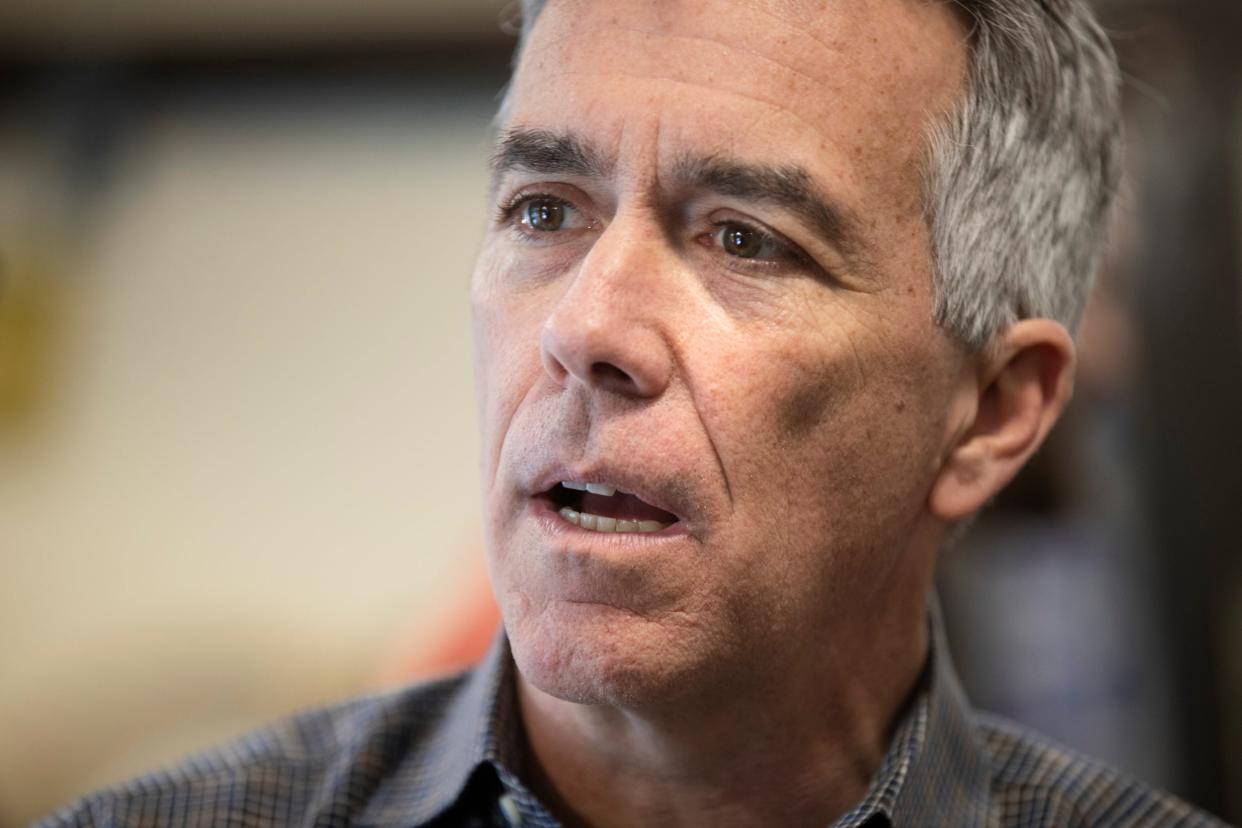Joe Walsh: Republican ends bid to challenge ‘unfit’ Trump for 2020 nomination

A former Illinois congressman who launched a Republican presidential bid against Donald Trump has announced he is dropping out of the race after failing to make a splash on the campaign trail.
Joe Walsh, who initially supported the president before becoming an outspoken critic and eventually announcing he’d challenge him for the White House on “moral” grounds, made the announcement in a statement on Friday morning.
He told supporters: “Running for president is the hardest thing I’ve ever done. Today I’m suspending my candidacy.”
“The reason is simple: the Republican Party is a cult,” he continued. “No one, no matter his or her profile, can defeat Donald Trump in a Republican primary.”
Mr Walsh, who became a prominent conservative talk radio host following his stint in office, last year announced his campaign against the president while attacking Mr Trump as “nuts” and “erratic”, adding: “We’ve never had a situation like this. You can’t believe a word he says.”
I’m suspending my campaign, but our fight against the Cult of Trump is just getting started. I’m committed to doing everything I can to defeat Trump and his enablers this November. I can’t do it alone. Join me at https://t.co/d40HA9h2Kz.
— Joe Walsh (@WalshFreedom)
But his long-shot candidacy didn’t break through Mr Trump’s firewall of support in the Republican Party, with nearly 90 per cent of Republican voters saying in recent surveys they support his presidency.
Mr Walsh didn’t appear to attract a substantial amount of moderates or independents to his campaign. The former congressman had previously stirred controversy for a number of incendiary comments, including a tweet in October 2016 in which he wrote: “If Trump loses, I’m grabbing my musket.”
The former congressman criticised the Iowa Republican Party earlier this week while claiming the first-in-the-nation caucus was rigged in support of the president.
“The state party did everything they could do to make sure their dictator got 100 percent of the vote,” he told HuffPost, adding: “They almost did.”
It was later reported Mr Trump won 97 per cent of the vote, compared to Mr Walsh’s estimated 1 per cent.
Bill Weld, another Republican challenger to Mr Trump, also received about 1 per cent of support during the Iowa caucus.

